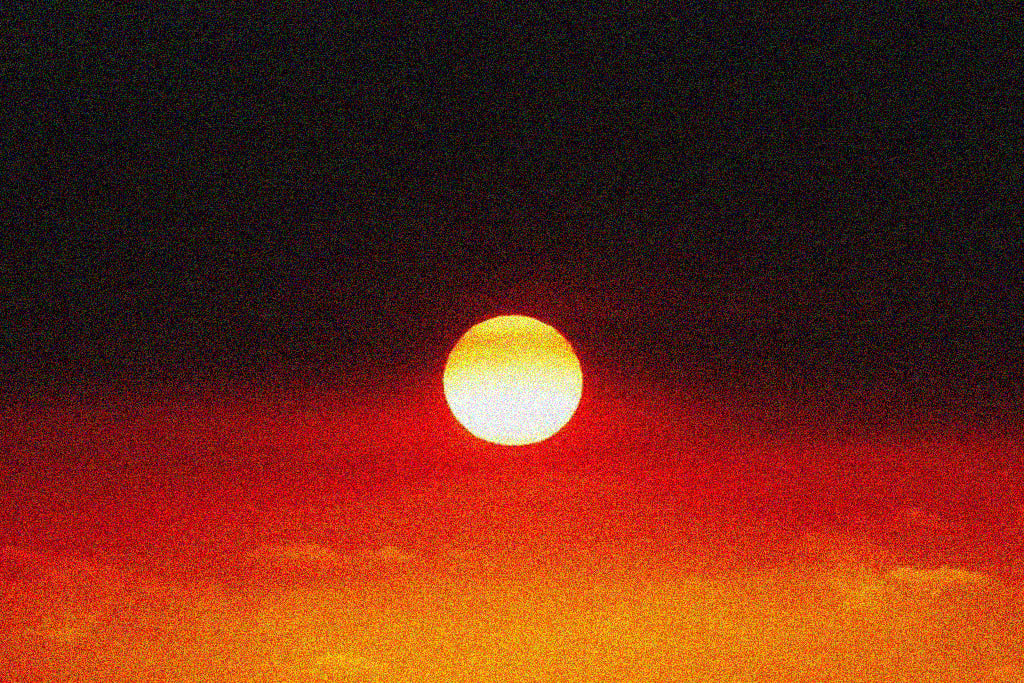Learning About My Heritage Taught Me About The Threads That Bind Australia
"Every single trauma visited upon the First Australians as a result of European colonisation has a single thread that leads directly back to January 26th, 1788."

We all have a thread that connects us to our past. Sometimes we know where it leads, but other times we can’t know. When it comes to Aboriginal history, many of those threads have been severed.
It wasn’t until I was eight that I first became aware I was an Aboriginal Australian. That year, we had a pancake day at school, and one of the local Aboriginal elders came along to the school to help out. Her name was Olga Miller.
“You’re Stephen’s boy, aren’t you?” she asked me.
Stephen was my father’s name. I knew his name, but that was about all I knew about him. His name, and that he’d chosen not to be a part of my life.
“Yeah,” I might have said. Or maybe, “I think so.”
“You probably don’t know this, but I’m your great grandma,” she said. “But you can call me Aunty Olga like everyone else if you want.”
Family is important, and I think she knew that I’d felt disconnected from my father’s side of the family purely by his decision to remove himself from my life. But that was the first moment I realised that I was part of something bigger.
Something that stretched back thousands of years into Australian history.
Identity
As I grew up, I had a bit of a crisis of identity.
Whenever the question came up on forms that asked me if I identified as Aboriginal or Torres Strait Islander, I was conflicted. I knew that by blood I was, but I felt so disconnected from the culture that I also felt that I had no right to say yes.
My father didn’t reach out to me until after I turned eighteen. He called my mother and asked if I wanted to meet him, and I said yes. I didn’t know whether I was going to punch him in the face or hug him when I met him, but as it turns out, I did neither. We talked about music, and we bonded over playing the guitar. Neither of us was very good, but he liked the blues, and he played it with passion.
He spent his days chasing family history. He regaled me with the stories of Willy Wondunna, my great, great, great grandfather, one of the Aboriginal trackers present at the capture of Ned Kelly. He took me to the middens he said he discovered hidden in Hervey Bay’s shoreline.
He showed me all of the stone tools he found and collected in the bush. He even had two rare rib bones and posed for a photo like he was the bone-pointing executioner (kurdaitcha) of the Butchulla people. He said he was going to open a museum to celebrate the scattered history of our tribe, but he never got the chance.

Photo supplied by the author.
Four years after I started to get to know him, he died. He was 44, and I was 22. He was my main link to this culture, and now it was severed. But the connection he’d helped forge was irrevocable. For the first time in my life, I felt a genuine connection to the land of Maryborough, Hervey Bay, and Fraser Island.
The Wide Bay was always home, but now that word home had a whole new meaning.
K’gari
Years after his death, I started looking into my family history myself.
I learned that K’gari, now widely known as Fraser Island, was named after Eliza Fraser, a woman who became shipwrecked on the island in 1836. My ancestors rescued her, and in turn, she vilified and demonised them upon her return to the mainland. SBS recently did a great interactive documentary on K’gari, and I’d highly recommend it to everyone.
From Christmas Eve, 1851, to January 4th, 1852, a contingent of white men, native police, and squatters sworn in as special constables travelled to K’gari and carried out a series of massacres that killed many Butchulla people. They hunted my family for sport.
I was sitting on the train when I read about these massacres, and I remember vividly the sense of complete and utter hopelessness I felt. This was an immutable historical event, but this was not like reading about some disconnected event that happened to someone else.
It was my family’s blood that spilled on the sand and into the sea, all because of the stories spread by a white woman years before who saw them as savages.
January 26
These massacres didn’t happen on January 26th, but the systematic slaughter of Australia’s First People and the erasure of their culture certainly started on that date.
Every single trauma visited upon the First Australians as a result of European colonisation has a single thread that leads directly back to January 26th, 1788.
The more I read about the history of the first Australians, the more my attitude towards Australia Day changed. Before, I was ambivalent. I had no strong opinion one way or the other — it was just an arbitrary date, right?
If it’s not broke, don’t fix it, hey.
Nah, mate.
It’s always been broken.
Now it’s time to fix it.
Matthew J. Barbeler is an author of dark fiction, and hopeless narrative junkie.